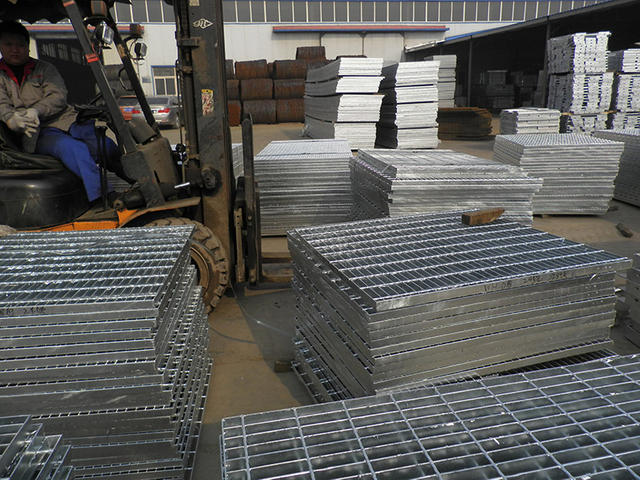Nov . 27, 2024 06:03 Back to list
Deformed Steel Bar Production in Chinese Manufacturing Facilities and Their Market Impact
The Landscape of Deformed Steel Bar Production in China
As the world's largest producer of steel, China plays a pivotal role in the global construction and manufacturing industries. Among the vast array of steel products, deformed steel bars—often referred to as rebar—are essential materials for reinforced concrete structures. These bars are characterized by their distinct surface patterns, which enhance their bonding capabilities with concrete, making them critical for the strength and durability of buildings, bridges, and other infrastructure projects.
Understanding Deformed Steel Bars
Deformed steel bars are produced by a process that introduces surface deformations, such as ribs and grooves, to plain steel bars. This design feature allows for improved mechanical interlocking with the surrounding concrete, thereby enhancing structural integrity. Deformed bars are categorized based on their yield strength and are available in various diameters, typically ranging from 6mm to 50mm. The higher the yield strength, the better the bar's performance under tensile stress, making them indispensable for construction in seismic zones and areas susceptible to heavy loads.
The Deformed Steel Bar Industry in China
China's deformed steel bar industry has seen significant advancements in technology and production capability over the years. The country boasts numerous factories equipped with state-of-the-art machinery and processes to meet the growing demand for these materials. The production of deformed steel bars involves several critical steps raw material preparation, melting, casting, rolling, and finishing.
Most factories in China utilize Electric Arc Furnaces (EAF) or Basic Oxygen Furnaces (BOF) for melting scrap steel and iron ore. Following the melting process, the molten steel is cast into billets, which are then reheated and rolled to form deformed bars. Modern production techniques, including continuous casting and rolling mills, have boosted efficiency and reduced production costs.
Key Manufacturers and Competitiveness
Several factories in China are recognized for their substantial output and high-quality deformed steel bars. Major players like Baosteel, Jiangsu Shagang, and Hebei Iron and Steel Company have established themselves as leaders in the market. These companies not only produce rebar for domestic consumption but also export significant quantities to countries around the world.
deformed steel bars china factories

The competitive landscape in China’s deformed steel bar industry is shaped by factors such as production capacity, quality control, and pricing strategies. With stringent quality requirements defined by international standards, many factories invest in advanced quality assurance measures. They conduct extensive testing for tensile strength, ductility, and fatigue resistance to ensure that their products stand up to rigorous building codes.
The Role of Infrastructure Development
China’s rapid urbanization and infrastructure development have driven the demand for deformed steel bars. Massive construction projects, including residential buildings, highways, bridges, and rail systems, rely heavily on high-quality steel reinforcement. Initiatives such as the Belt and Road Initiative (BRI) have further fueled the demand for construction materials, including rebar, as China extends its influence and builds facilities in partner nations.
Challenges and Future Prospects
While the deformed steel bar industry in China thrives, it faces challenges such as fluctuating raw material prices, environmental regulations, and trade dynamics. The government has introduced stricter environmental policies aimed at reducing emissions from steel production, prompting many factories to innovate and seek greener production methods.
Looking ahead, the future of the deformed steel bar industry in China appears promising. The continued growth of urban infrastructure and the push towards modernization will sustain the demand for high-strength, reliable rebar. Furthermore, as factories invest in technology and adopt sustainable practices, they will not only enhance their competitiveness but also align with global trends towards sustainability in the construction sector.
Conclusion
In conclusion, the deformed steel bar factories in China exemplify a blend of tradition and technology, producing a vital component of modern construction. As the nation continues to develop and reshape its urban landscapes, the importance of reliable, high-quality rebar will remain central to the success of projects that uphold safety and durability. The Chinese steel industry's adaptability and commitment to quality will likely play a crucial role in meeting both domestic and international demand for deformed steel bars in the years to come.
-
Premium Welded Reinforcing Mesh SL62/SL72/SL82 High-Strength Solutions
NewsJun.01,2025
-
Diamond Mesh Expanded Sheet Factories Durable & High-Strength Design
NewsJun.01,2025
-
REO Mesh Solutions High-Quality Manufacturers & Trusted Suppliers
NewsJun.01,2025
-
SL72 Reinforcing Fabric Factories & Suppliers High-Strength Material
NewsMay.31,2025
-
Electro Galvanized Wire Low Price Durable & Affordable Suppliers
NewsMay.31,2025
-
Steel Driveway Grates Grating - Heavy-Duty & Custom Sizes
NewsMay.31,2025

